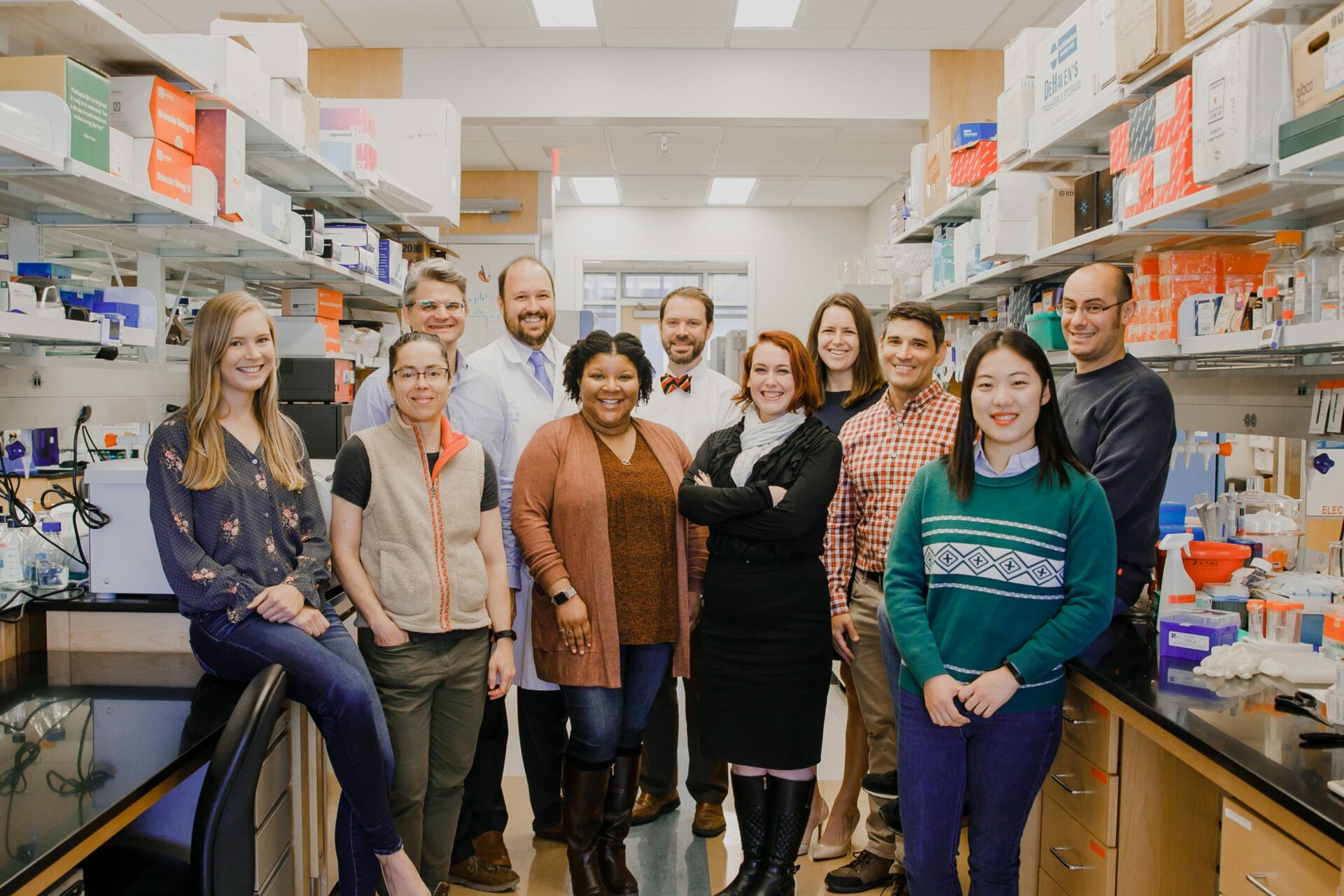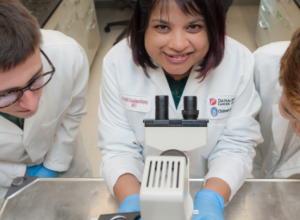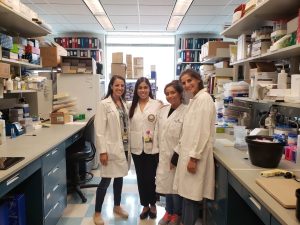Triple negative breast cancer (TNBC) makes up only about 10-15% of all breast cancers, but it is an aggressive form that often spreads, making it harder to treat. TNBC is especially pernicious when it spreads to the brain, where survival is usually less than six months. Treatments may fail to reach these metastases, because the barrier that prevents toxins from reaching the brain may also block cancer therapies, including the immunotherapies that have revolutionized treatment for so many other types of cancer.
 “This is currently a big problem, because more than half of TNBC patients will develop metastases to the brain,” said Ben Vincent, M.D., of the UNC Lineberger Comprehensive Cancer Center. “Normally, the cells of the immune system that attack cancer cells don’t get into the brain as well as they get into other tissues. This is a big clinical unmet need for these patients.”
“This is currently a big problem, because more than half of TNBC patients will develop metastases to the brain,” said Ben Vincent, M.D., of the UNC Lineberger Comprehensive Cancer Center. “Normally, the cells of the immune system that attack cancer cells don’t get into the brain as well as they get into other tissues. This is a big clinical unmet need for these patients.”
Vincent and his collaborator, Carey Anders, M.D., at the Duke Cancer Center, are working to help the immune system sneak through the brain’s defenses to attack the cancer cells hiding there.
Their work, funded in part by the 2018 V Foundation Wine Celebration in honor of Robin Lail, is taking a two-pronged approach. The first is an effort to get more immune cells into the brain. For this, they are combining radiation therapy with immunotherapy. The radiation helps open up the blood brain barrier, allowing more immune cells to enter the brain and take on the tumor. The second tactic is to develop a personalized vaccine to build up an army of cancer-fighting immune cells in a patient’s blood. This would boost the number of immune cells that are specially “trained” to seek and destroy tumor cells.
To be successful, however, the team needs both tactics to work in tandem.
“If you can’t achieve both of those things, it doesn’t help the patient,” said Vincent. “If you can make tons of circulating anti-tumor immune cells, but they don’t get to the tumor, you haven’t done anything. If you can open up the tumor to immune cells, but you don’t have enough immune cells to take advantage, that also doesn’t work. So, we have to do both of these things at once in order to have a successful therapeutic strategy.”
The researchers have made strides toward making this treatment a reality. The FDA has given the green light for starting clinical trials for the team’s therapeutic vaccine, which they hope to begin within the next six months. Radiation therapy is already approved for TNBC metastases to the brain. Successful clinical trials for the vaccine-based immunotherapy would be an important step toward realizing the team’s vision for a more personalized – and successful – treatment for this challenging cancer.
Vincent notes that none of this work would have been possible without the funding from the V Foundation.
“The grant from the V Foundation was critical. We couldn’t have done our preclinical work otherwise,” said Vincent. “The National Institutes of Health are very good at providing funds for foundational biological discoveries. But what’s missing is getting research out of the lab and into clinical trials.”
Bringing research from the lab into clinical trials—and ultimately, to patients and families—is what the V Foundation is all about. These are the steps that save lives. These are the steps that could not be done without your continued support. Together, we can turn ideas into cures.



 This difference has led
This difference has led 
 Fortunately, kids with B-ALL have
Fortunately, kids with B-ALL have 


 The V Foundation has awarded nearly $55 million in grants towards pediatric cancer research.
The V Foundation has awarded nearly $55 million in grants towards pediatric cancer research. 
 What does a young woman from a small town in Kentucky fixing watches and toasters have to do with potentially life-saving cancer research? That’s how
What does a young woman from a small town in Kentucky fixing watches and toasters have to do with potentially life-saving cancer research? That’s how 



 This theory is being applied by
This theory is being applied by 
 Metelitsa’s work is supported by a
Metelitsa’s work is supported by a 
 One such grant went to
One such grant went to 



